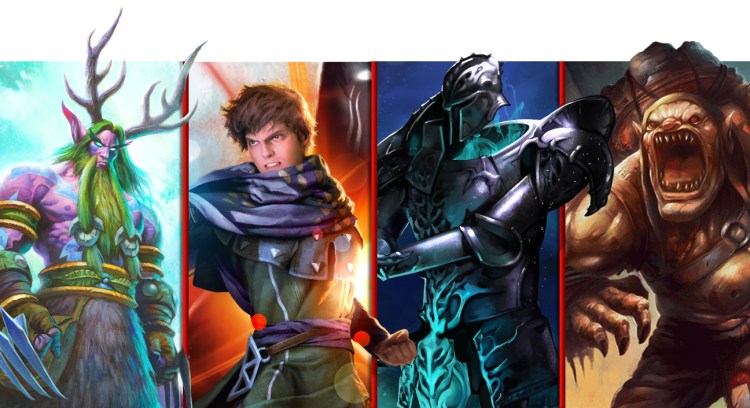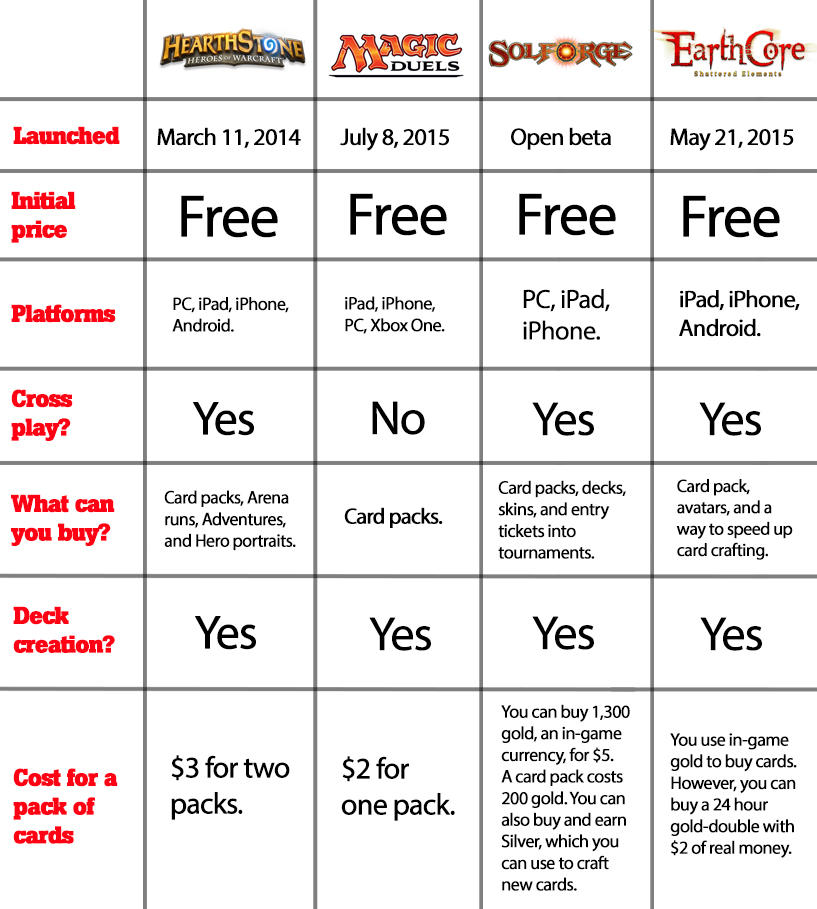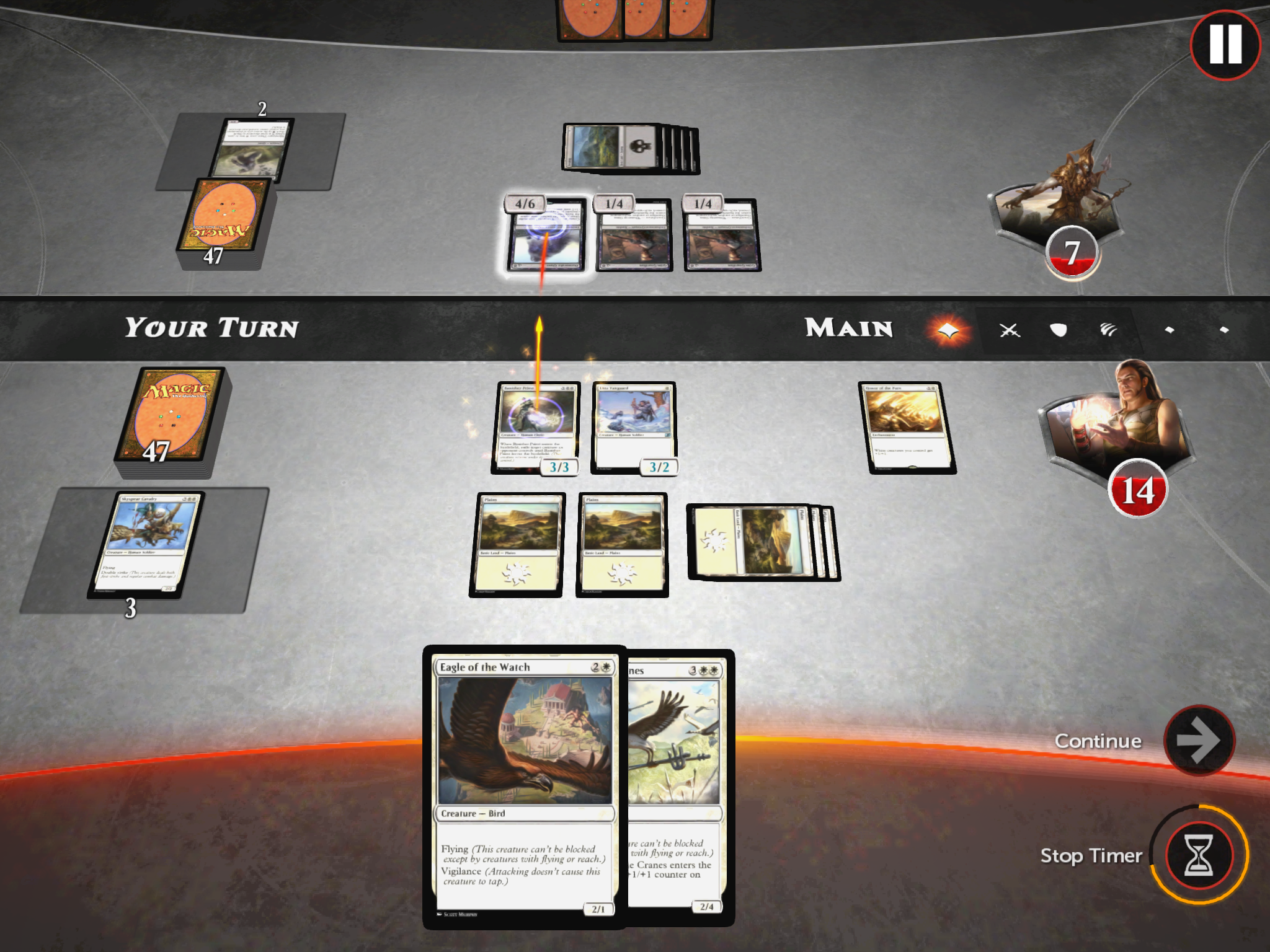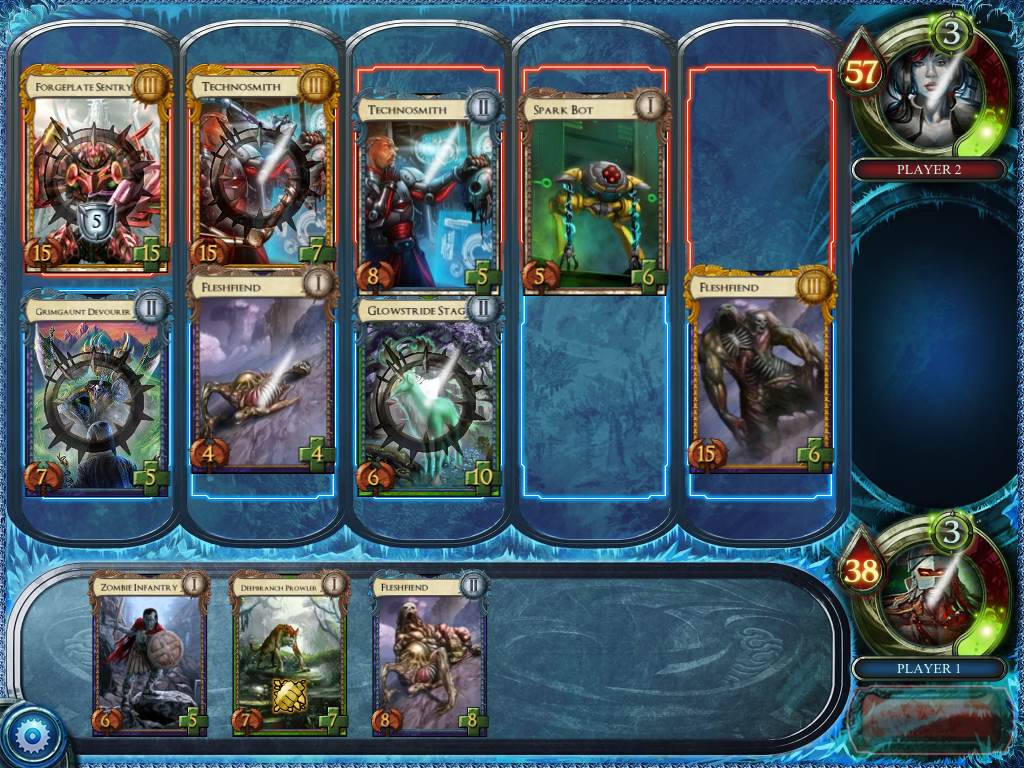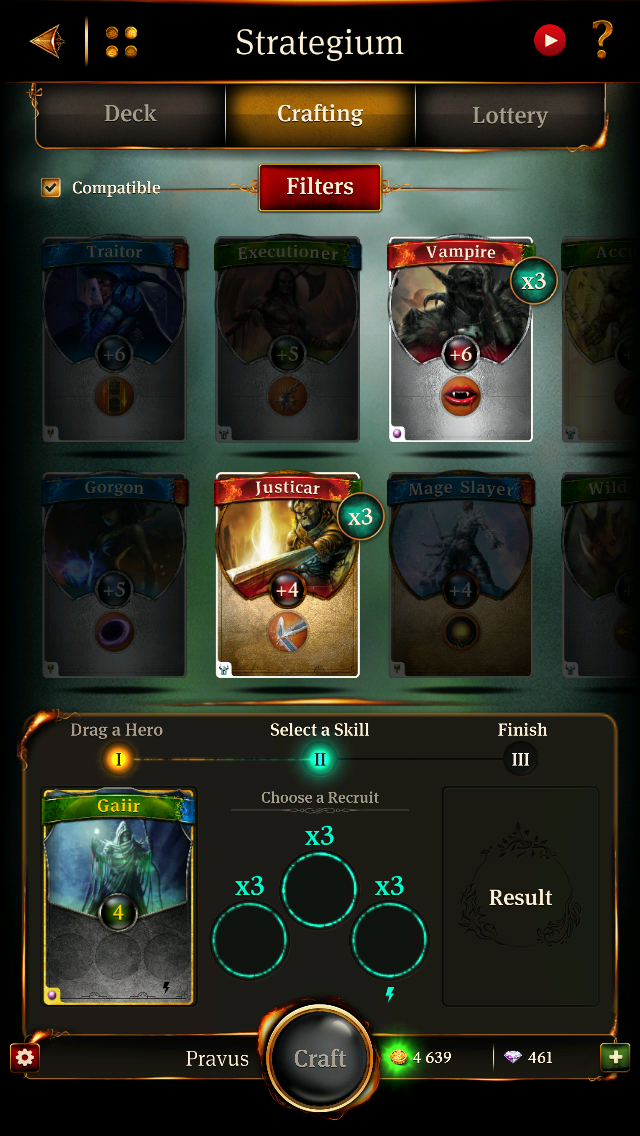We used to play cards games with, you know, cards. These days, we have PCs, phones and tablets.
Digital card games are becoming a big industry trend, and players have plenty of options. Last year, we compared three of the biggest titles in the genre. Well, a lot has already changed in the digital card arena, so we’ve updated the chart and story with some new info and new games.
Hearthstone: Heroes of Warcraft
Hearthstone is from Blizzard, the developer and publisher behind the famous World of Warcraft massively multiplayer online game. Hearthstone features cards based on characters and spells from the Warcraft universe. Each deck centers around a class and hero, each with their own special abilities and specific cards. For example, a Hunter can use 2 mana (an in-game resource) to deal 2 damage to the enemy hero, while a Warlock can deal 2 damage to itself and draw an extra card.
Hearthstone plays similar to famous card games like Magic the Gathering. The objective is to use spells and minions to deplete your opponent’s health. However, Hearthstone really takes advantage of its digital aspect with its flashy, fun presentation. Cards sparkle and shoot flames, and you can click around the game board to trigger fun little effects.
Hearthstone also has an interesting mode called Arena. You can either use an in-game currency you earn while playing or spend real money to start the mode, which has you craft a new deck out of random cards. You then see how long you can last against other Arena players before losing three times. The more wins you stack up, the better your rewards. It also has a weekly Tavern Brawl, a rotating challenge based around specific rules (like starting you with 10 mana or giving you a spell every time you play a minion). The game also has Adventure mode. You can buy campaigns which pit you against special A.I. opponents. Beating them earns you new cards.
Magic Duels
Magic Duels is the successor to Duels of the Planeswalkers, an annual digital version of Magic the Gathering. Unlike Planeswalkers, Magic Duels is free-to-play. It also allows players to create their own decks. A Deck Wizard feature can help newer players, but veterans can also have total freedom with making new builds. You can buy booster packs from an in-game shop with real money or an in-game currency.
Magic Duels has plenty of tutorials that teach you how to play. It also has a series of campaign modes that has some story-based cutscenes between matches. You can also play Two-Headed Giant mode, which has two teams of two players fighting each other.
Unlike the other games on this list, Magic Duels is also for consoles. The Xbox One version is out on July 31. Magic Duels also gets a release on PlayStation 4 later this year.
SolForge
SolForge has a lot mechanical similarities to Hearthstone. It’s free-to-play, and you can buy digital card packs that you can use to make your own decks.
But in terms of gameplay, SolForge couldn’t be more different from Hearthstone and Magic. The game board consists of five lanes, which each player can put one character in. Characters fight the enemy that shares the same lane, or they deal damage directly to the other player if the opposing lane is empty. Cards can also level up, a mechanic that would be difficult in a real card game, but this works well in the digital realm.
SolForge has a Tournament mode. Similar to Hearthstone’s Arena, you have to buy access, and your success in it can grant you rewards. These events either have you draft cards to create our own decks or use those you’ve already made and saved to your account. It now also has a single-player Campaign mode that rewards players with high-powered cards.
SolForge is a good choice for players who are looking for a free-to-play experience that deviates more dramatically from the Magic the Gathering mold. Also, while it’s been playable since 2012, SolForge is still technically in open beta/early access.
EarthCore
EarthCore has a paper-scissors-rock mechanic, with cards having water, fire, and earth types. Instead of Attack numbers on each card, each one has a Risk value. If that card loses its matchup with the opponent in the same lane, that Risk number is taken off of your health. It’s an interesting variation on traditional card game mechanics.
It might sound kind of simple, but cards can have skills that can switch things up. However, you can only use one skill a turn. Some can deal damage, while others can move a card’s position on the table.
You can also craft special cards, called Hero cards, that have multiple skills. EarthCore also has a campaign that puts you in battle against AI opponents.
Buying cards is a little more complicated than in the other games. You use an in-game currency called gold to buy boosters. You can’t directly buy gold, but you can purchase a 24 hour gold-doubler for $2. You earn gold by playing the campaign or online opponents.
VentureBeat's mission is to be a digital town square for technical decision-makers to gain knowledge about transformative enterprise technology and transact. Learn More
